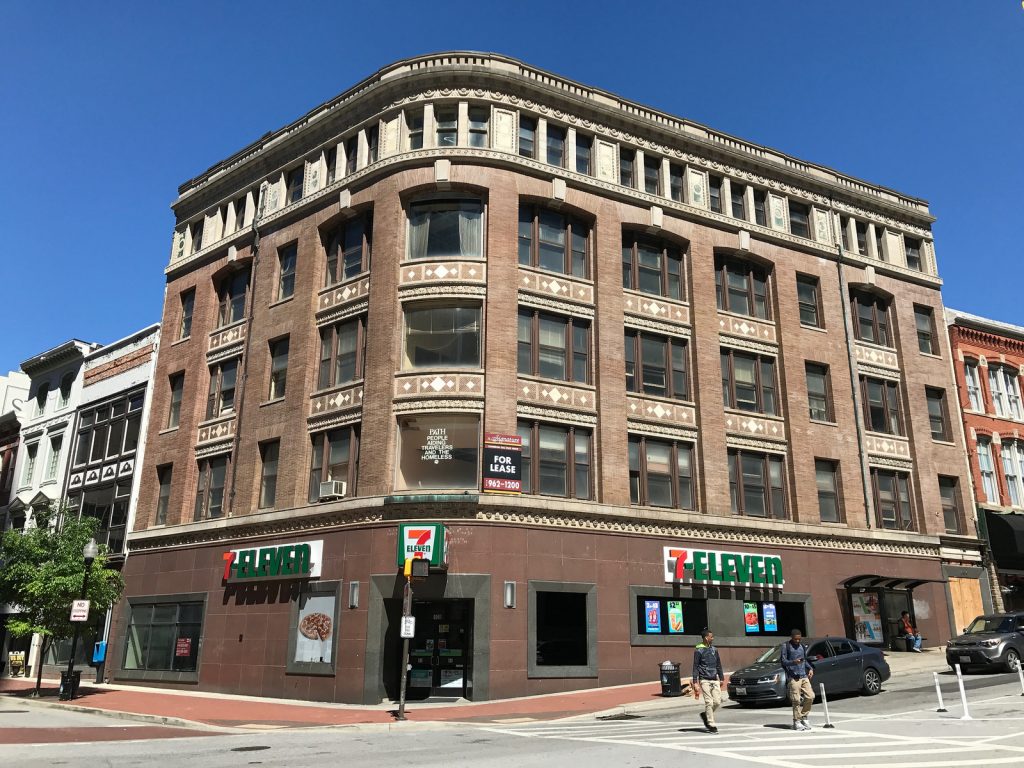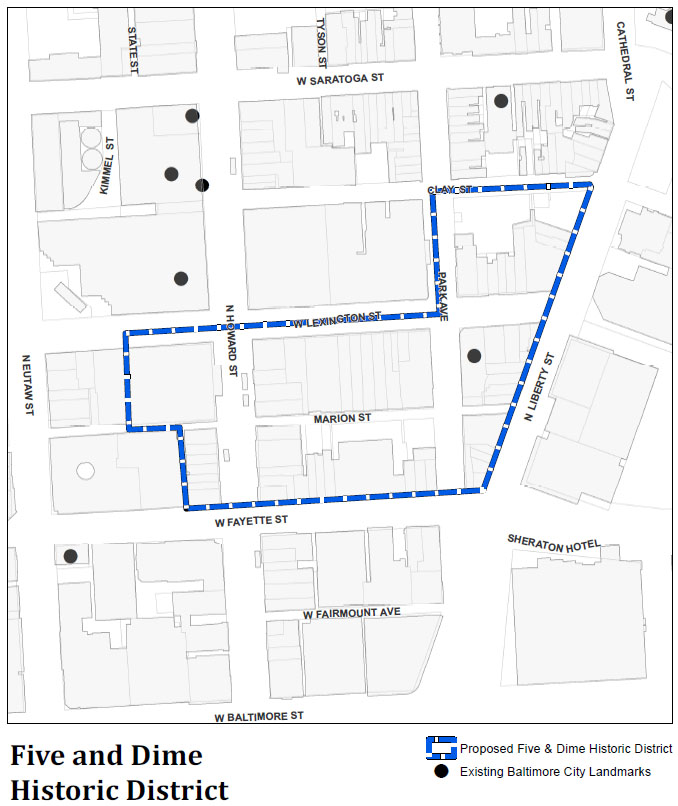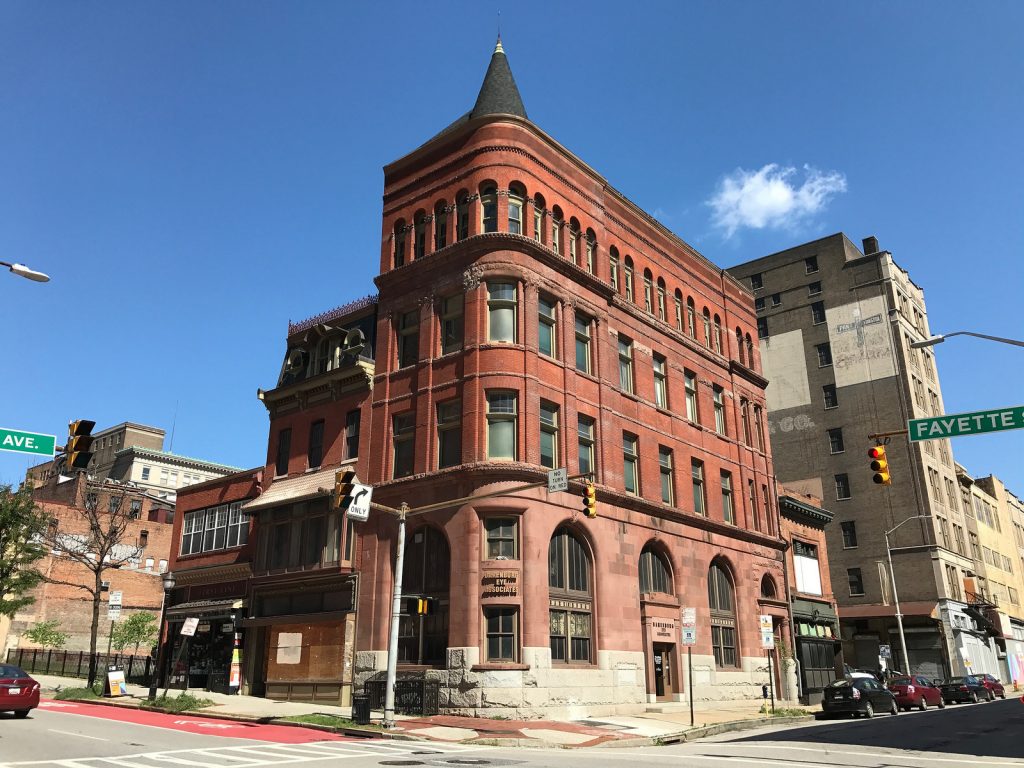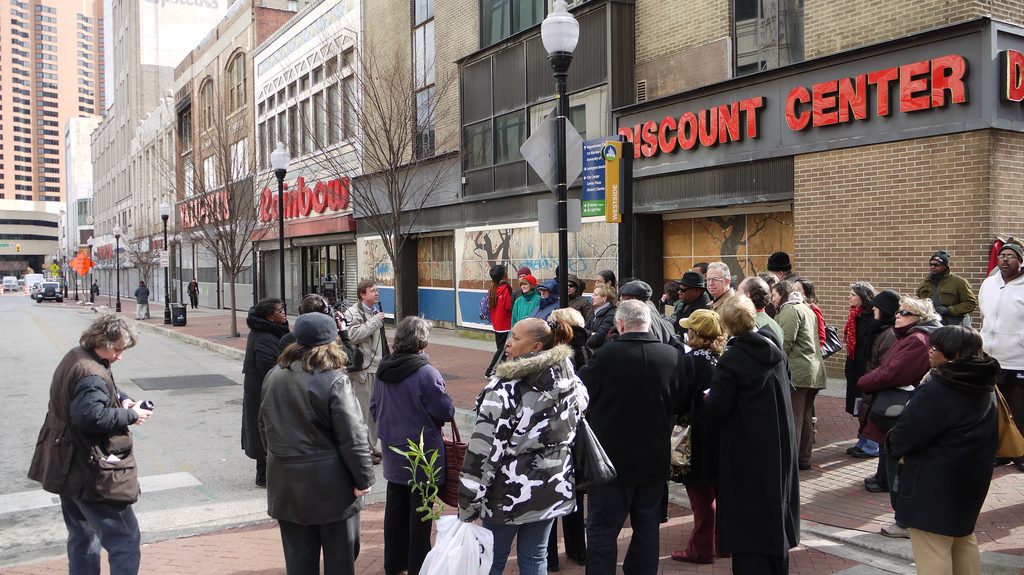Baltimore Heritage has advocated for preserving buildings in the Market Center historic district on the west side of downtown for almost twenty years. Six years ago, our campaign for the preservation of Read’s Drug Store (and the threatened five-and-dime stores along the 200 block of W. Lexington Street) helped to bring the history of the proposed Five and Dime historic district to broader public attention and won the stores a temporary reprieve from demolition.
Last week, we testified to support a proposal by the Baltimore Commission for Historical and Architectural Preservation to designate a new local historic district granting the stores, banks, and offices along Lexington, Howard, Liberty and Fayette Streets the lasting protection they deserve. Fortunately, the commission voted to approve the designation and the proposal will continue for a hearing before the City Council before it can be officially designated later this year. The Five and Dime district is one of two new historic districts coming to the area after CHAP approved the new Howard Street district at their hearing on July 11.

We believe that these local district designations will offer a clear, consistent, and predictable design review framework for existing property owners and potential investors. In a welcome change from their position six years ago, the Baltimore Development Corporation is actively supporting the preservation of the city-owned buildings in the Market Center area through stabilization work and new preservation requirements for developers responding to requests for proposals. The districts will also be a tool to protect privately owned buildings from demolition or inappropriate changes.

The buildings within the new districts are important not just for their architecture but also for the stories of the everyday people who worked and shopped in these buildings: from humble retail clerks to bank executives to student protestors. Preserving the stories of these people is important to the civic identity and memory of Baltimore’s residents, the success of heritage tourism in Baltimore City, and the continued development of the Market Center area.

For more information on the history and architecture of the two proposed districts, you can download the CHAP staff report for the Five and Dime Historic District or the report for the Howard Street Historic District. You may also enjoy this look at the history of Lexington Street as the “city’s busiest shopping area” column by Jacques Kelly in the Baltimore Sun.


Great work, very worthy history to preserve in this area.
This is a beautiful area filled with history and great architecture. Very worthy of preservation for future generations and a great asset to the city.